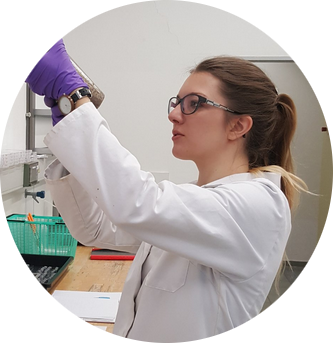Soil-Plant Interaction
Soil-Plant Interaction describes biological, physical and chemical processes that occur at the interface between soil and roots, the underground part of plants.
The size of the interface is dynamic, depending on rates of growth and decay. The spatial distribution of roots in a soil profile is influenced by soil structure and heterogeneity in resource availability. However, by their activity roots they alter their environment; i.e. soil structure, soil chemistry, distribution of water, nutrients, and trace elements. Roots are an important source of organic matter and hence attract and nourish microorganisms in their immediate vicinity. Numerous positive and negative feedback loops make the soil-root interface highly dynamic in respect to chemical, physical and biological properties.
From the plant perspective as a sessile organism, this all serves to optimize the acquisition of scarce resources or to avoid toxic ones with a minimal energy investment to allow for growth and reproduction. From the ecosystem perspective these processes do not only impact net primary production and decomposition, habitat quantity and quality for microorganisms, but also transport of water and chemicals in soil. Within the working group soil-plant interaction we develop methods for investigating in situ for the rhizosphere and bulk soil the dynamics of
- physical characteristics (soil strength and structure),
- hydrological characteristics (availability and distribution of water), and
- chemical characteristics (concentration and distribution of nutrients and toxic elements)
- with regard to changes in the microbiome, we maintain numerous collaborations to establish methods for recording the interaction between soil microbiome and plant.
On lab and field scale we try to quantify how changes in these characteristics feedback on plant growth and transport of water and chemicals. We work on several questions in the context of (i) efficient use of scarce resources (water, nutrients, K), (ii) cycling of nutrients for sustainable production (Si), (iii) availability of contaminants (As), (iv) alteration of soil structure by roots, (v) plant-microbe interplay, (vi) the contribution of roots to carbon sequestration and storage in soils.
Scientists
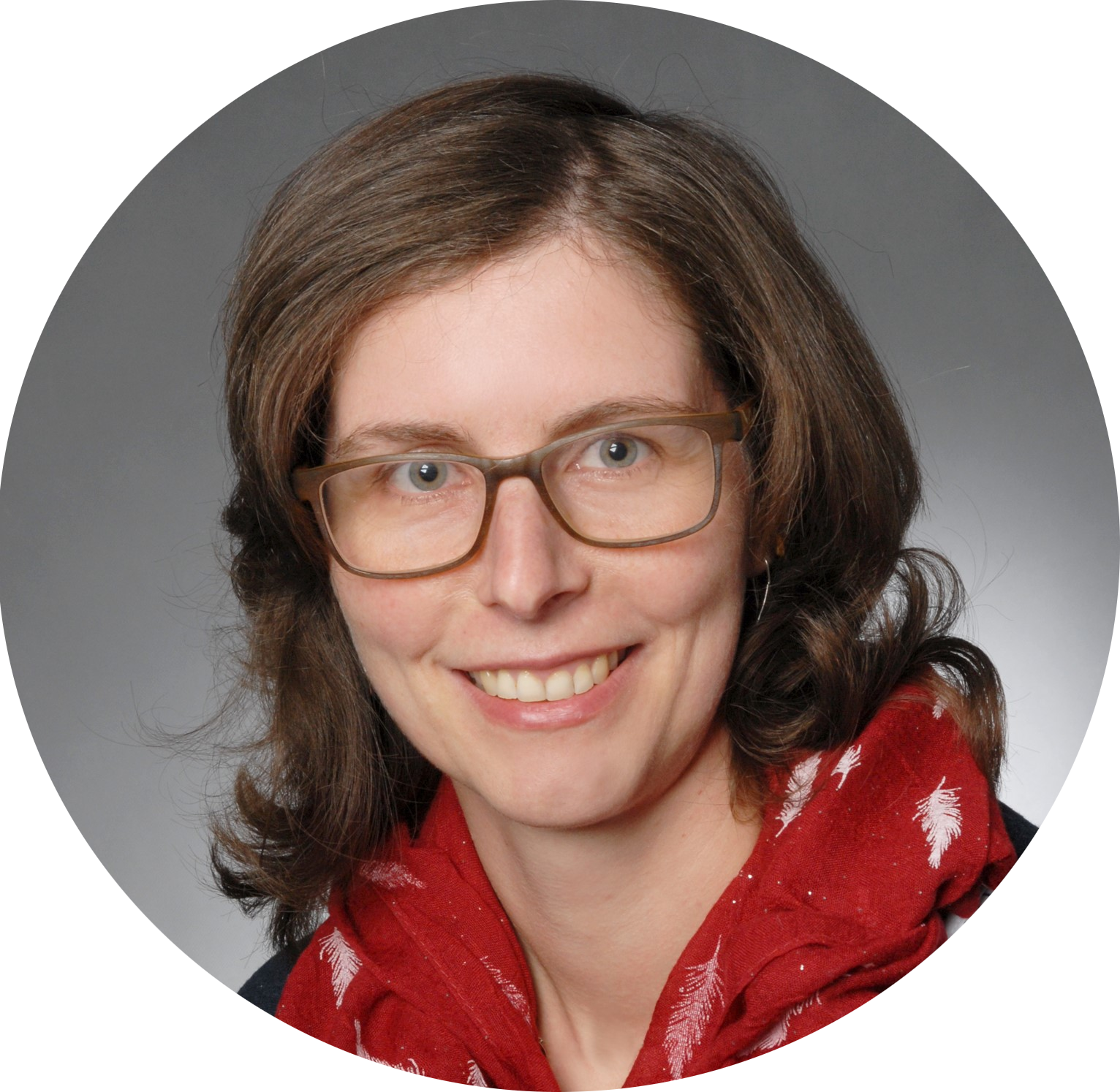
Dr. Susanne Schreiter
Scientist
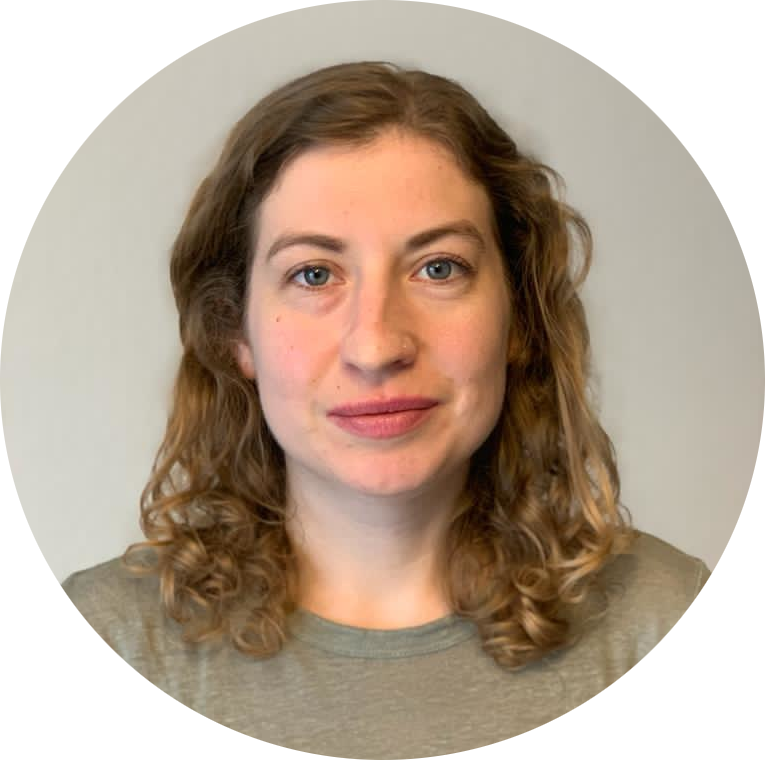
Dr. Jessica Clayton
Scientist
Dr. Juliane Horn
Scientist
Kristin Hauschild
Scientist
Veronic Töpfer
Scientist

Abebaw Misganaw Ambaw
PHD Student
Technicians

Eric Braatz
Alban Gebler
Alumni
Dr. Eva Lippold
Dr. Maik Lukas
Dr. Annika Klotzbücher
Dr. Nico Koebernick
Juliane Ackermann
Kristian Szegedi
Ina-Maria Zickenrott
Nico Schulze
Dr. Sebastian Blaser
Wei Gao
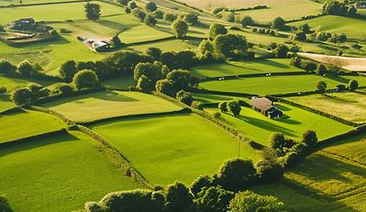
Permanent Senate Commission on the Transformation of Agricultural and Food Systems
The primary focus of the Permanent Senate Commission on the Transformation of Agricultural and Food Systems (SKAE) is to advise various target groups in politics, research and society on developments relating to upcoming transformations in agricultural and food systems
Chair: Prof. Dr. Doris Vetterlein

GLIMPSE - Research Consortium
P3: Root-Soil Interactions
Root architecture, Soil structure dynamics, Soil moistureProject leader: Dr. Steffen Schlüter (PI), Prof. Dr. Doris Vetterelin, Dr. Mika Tarkka
Funded by: Helmholtz-Zentrum für Umweltforschung - UFZ
Root2Res
Root2Res will provide a package of solutions to improve the resilience of crop rotation systems by considering relevant root traits in light of climate change impacts.
Project leader: Prof. Dr. Doris Vetterlein
Funded by: EU
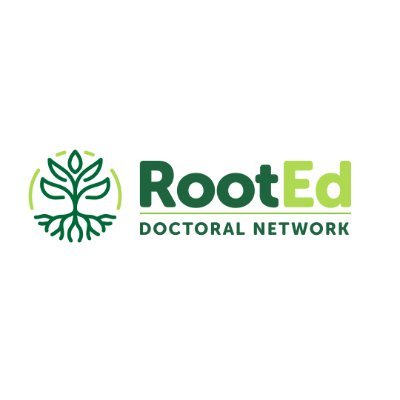
Doctoral Network RootEd
This project is funded by the European Commission under the Horizon-MSCA-DN-2021 programme and will train a new generation of 10 high-achieving, doctoral researchers in plant and soil sciences.
Funded by: EU
2026 (1)
- Phalempin, M., Lippold, E., Vetterlein, D., Schlüter, S. (2026):
Root-soil contact as a driver of rhizosphere structure and plant performance traits in contrasting soil structures
Eur. J. Soil Sci. 77 (1), e70266 10.1111/ejss.70266
2025 (15)
- Gocke, M.I., Scheibe, A., Vergara Sosa, M., Vetterlein, D., Pausch, J., Lippold, E., Lehndorff, E. (2025):
Rhizodeposit carbon gradients: Potentials and limitations of destructive rhizosphere sampling on a millimeter-scale
J. Plant Nutr. Soil Sci. 188 (4), 616 - 625 10.1002/jpln.12011 - Hartwig, R.P., Santangeli, M., Würsig, H., Martín Roldán, M., Yim, B., Lippold, E., Tasca, A., Oburger, E., Tarkka, M., Vetterlein, D., Bienert, P., Blagodatskaya, E., Smalla, K., Hause, B., Wimmer, M.A. (2025):
Drought response of the maize plant–soil–microbiome system is influenced by plant size and presence of root hairs
Ann. Bot. 136 (5-6), 1013 - 1030 10.1093/aob/mcaf033 - Lippold, E., Landl, M. (2025):
Dataset associated with publication [Data set
Zenodo 10.5281/zenodo.14892860 - Lippold, E., Landl, M., Braatz, E., Schlüter, S., Kilian, R., Mikutta, R., Schnepf, A., Vetterlein, D. (2025):
Linking micro-X-ray fluorescence spectroscopy and X-ray computed tomography with model simulation explains differences in nutrient gradients around roots of different types and ages
New Phytol. 246 (4), 1780 - 1795 10.1111/nph.70102 - Martín Roldán, M., Fasching, C., Muehe, E.M., Vetterlein, D., Tarkka, M.T., Blagodatskaya, E. (2025):
Root hair-deficient mutant of maize promoted an increase in C and N in loamy soil after 5 years of monoculture
Biol. Fert. Soils 10.1007/s00374-025-01949-7 - Phalempin, M., Jentzsch, N., Köhne, J.M., Schreiter, S., Gründling, R., Vetterlein, D., Schlüter, S. (2025):
Soil structure development in a five-year chronosequence of maize cropping on two contrasting soil textures
Soil Tillage Res. 251 , art. 106561 10.1016/j.still.2025.106561 - Phalempin, M., Schneider, H., Han, E., Cheng, L., Vetterlein, D. (2025):
Designing future roots with the power of databases
Trends Plant Sci. 30 (5), 439 - 441 10.1016/j.tplants.2025.01.012 - Prifling, B., Weber, M., Rötzer, M., Ray, N., Prechtel, A., Phalempin, M., Schlüter, S., Vetterlein, D., Schmidt, V. (2025):
Correlating pore space morphology with numerically computed soil gas diffusion for structured loam and sand, including stochastic 3D microstructure modeling
Sci. Rep. 15 , art. 20174 10.1038/s41598-025-05825-0 - Schneider, H.M., Vetterlein, D. (2025):
The hidden half in the spotlight: the diverse strategies of root systems under stress
Ann. Bot. 136 (5-6), 919 - 921 10.1093/aob/mcaf222 - Sillo, F., Blaser, S.R.G.A., Díaz-Tielas, C., Clayton, J., Araniti, F., Sánchez-Moreiras, A.M., George, T.S., Balestrini, R., Vetterlein, D. (2025):
Size matters: influence of available soil volume on the root architecture and plant response at transcriptomic and metabolomic levels in barley
Plant Cell Environ. 48 (6), 4685 - 4702 10.1111/pce.15457 - Wacker, T.S., van der Bom, F., Delory, B.M., Vetterlein, D., Postma, J.A., Nagel, K.A., Schnepf, A., Dresbøll, D.B. (2025):
Back to the roots: standardizing root length density terminology
Plant Soil 511 (1-2), 91 - 98 10.1007/s11104-024-07075-x - Wilms, W., Horn, J., Riesch, F., Hamidi, D., Komainda, M., Hamidi, M., Isselstein, J. (2025):
Investigating cattle responses to acoustic signals to extend the functions of virtual fencing collars
Livest. Sci. 300 , art. 105788 10.1016/j.livsci.2025.105788 - Wu, M., Roscher, C., Schädler, M., Tarkka, M., Vetterlein, D., Schlueter, S. (2025):
Legacy effects of climate extremes on deep soil water storage and water use efficiency across different land-use systems
Research Square 10.21203/rs.3.rs-7062058/v1 - Würsig, H., Yim, B., Martín Roldán, M., Ghaderi, N., Stoll, F., Bouffaud, M.-L., Vetterlein, D., Reitz, T., Blagodatskaya, E., Smalla, K., Tarkka, M. (2025):
Responses of maize roots, rhizosphere enzyme kinetics, and prokaryote diversity to alternating precipitation: Insights from a three-year field study
Ann. Bot. 136 (5-6), 1081 - 1099 10.1093/aob/mcaf180 - Yim, B., Heider, M.A., Bloem, E., Vetterlein, D., Behr, J.H., Babin, D., Smalla, K. (2025):
Exploring the potential of seed inoculation with microbial consortia to mitigate drought stress in maize plants under greenhouse conditions
Plant Soil 10.1007/s11104-024-07110-x
2024 (6)
- Clayton, J., Lemanski, K., Solbach, M.D., Temperton, V.M., Bonkowski, M. (2024):
Two-way NxP fertilisation experiment on barley (Hordeum vulgare) reveals shift from additive to synergistic N-P interactions at critical phosphorus fertilisation level
Front. Plant Sci. 15 , art. 1346729 10.3389/fpls.2024.1346729 - Hauschild, K., Orth, N., Liu, B., Giongo, A., Gschwendtner, S., Beerhues, L., Schloter, M., Vetterlein, D., Winkelmann, T., Smalla, K. (2024):
Rhizosphere competent inoculants modulate the apple root–associated microbiome and plant phytoalexins
Appl. Microbiol. Biotechnol. 108 (1), art. 344 10.1007/s00253-024-13181-8 - Mueller, C.W., Baumert, V., Carminati, A., Germon, A., Holz, M., Kögel-Knabner, I., Peth, S., Schlüter, S., Uteau, D., Vetterlein, D., Teixeira, P., Vidal, A. (2024):
From rhizosphere to detritusphere - Soil structure formation driven by plant roots and the interactions with soil biota
Soil Biol. Biochem. 193 , art. 109396 10.1016/j.soilbio.2024.109396 - Niedeggen, D., Rüger, L., Oburger, E., Santangeli, M., Mutez, A., Vetterlein, D., Blagodatsky, S., Bonkowski, M. (2024):
Microbial utilisation of maize rhizodeposits applied to an agricultural soil at a range of concentrations
Eur. J. Soil Sci. 75 (4), e13530 10.1111/ejss.13530 - Santangeli, M., Steininger-Mairinger, T., Vetterlein, D., Hann, S., Oburger, E. (2024):
Maize (Zea mays L.) root exudation profiles change in quality and quantity during plant development - A field study
Plant Sci. 338 , art. 111896 10.1016/j.plantsci.2023.111896 - Vogel, H.-J., Amelung, W., Baum, C., Bonkowski, M., Blagodatsky, S., Grosch, R., Herbst, M., Kiese, R., Koch, S., Kuhwald, M., König, S., Leinweber, P., Lennartz, B., Müller, C.W., Pagel, H., Rillig, M.C., Rüschhoff, J., Russell, D., Schnepf, A., Schulz, S., Siebers, N., Vetterlein, D., Wachendorf, C., Weller, U., Wollschläger, U. (2024):
How to adequately represent biological processes in modeling multifunctionality of arable soils
Biol. Fert. Soils 60 (3), 263 - 306 10.1007/s00374-024-01802-3
2023 (5)
- Lippold, E., Schlüter, S., Mueller, C.W., Höschen, C., Harrington, G., Kilian, R., Gocke, M.I., Lehndorff, E., Mikutta, R., Vetterlein, D. (2023):
Correlative imaging of the rhizosphere ─ A multimethod workflow for targeted mapping of chemical gradients
Environ. Sci. Technol. 57 (3), 1538 - 1549 10.1021/acs.est.2c07340 - Phalempin, M., Rosskopf, U., Schlüter, S., Vetterlein, D., Peth, S. (2023):
Can we use X-ray CT to generate 3D penetration resistance data?
Geoderma 439 , art. 116700 10.1016/j.geoderma.2023.116700 - Prifling, B., Weber, M., Ray, N., Prechtel, A., Phalempin, M., Schlüter, S., Vetterlein, D., Schmidt, V. (2023):
Quantifying the impact of 3D pore space morphology on soil gasdiffusion in loam and sand
Transp. Porous Media 149 (2), 501 - 527 10.1007/s11242-023-01971-z - Prifling, B., Weber, M., Ray, N., Prechtel, A., Phalempin, M., Schlüter, S., Vetterlein, D., Schmidt, V. (2023):
Supplementary data for the journal article "Quantifying the impact of 3D pore space morphology on diffusive mass transport in loam and sand" (1.0.0) [Data set]
Zenodo 10.5281/zenodo.7516228 - Rüger, L., Feng, K., Chen, Y., Sun, R., Sun, B., Deng, Y., Vetterlein, D., Bonkowski, M. (2023):
Responses of root architecture and the rhizosphere microbiome assembly of maize (Zea mays L.) to a soil texture gradient
Soil Biol. Biochem. 181 , art. 109026 10.1016/j.soilbio.2023.109026
2022 (12)
- Bilyera, N., Hummel, C., Daudin, G., Santangeli, M., Zhang, X., Santner, J., Lippold, E., Schlüter, S., Bertrand, I., Wenzel, W., Spielvogel, S., Vetterlein, D., Razavi, B.S., Oburger, E. (2022):
Co-localised phosphorus mobilization processes in the rhizosphere of field-grown maize jointly contribute to plant nutrition
Soil Biol. Biochem. 165 , art. 108497 10.1016/j.soilbio.2021.108497 - Dumack, K., Feng, K., Flues, S., Sapp, M., Schreiter, S., Grosch, R., Rose, L.E., Deng, Y., Smalla, K., Bonkowski, M. (2022):
What drives the assembly of plant-associated protist microbiomes? Investigating the effects of crop species, soil type and bacterial microbiomes
Protist 173 (6), art. 125913 10.1016/j.protis.2022.125913 - Ganther, M., Lippold, E., Bienert, M.D., Bouffaud, M.-L., Bauer, M., Baumann, L., Bienert, G.P., Vetterlein, D., Heintz-Buschart, A., Tarkka, M.T. (2022):
Plant age and soil texture rather than the presence of root hairs cause differences in maize resource allocation and root gene expression in the field
Plants 11 (21), art. 2883 10.3390/plants11212883 - Ganther, M., Vetterlein, D., Heintz-Buschart, A., Tarkka, M.T. (2022):
Transcriptome sequencing analysis of maize roots reveals the effects of substrate and root hair formation in a spatial context
Plant Soil 478 (1-2), 211 - 228 10.1007/s11104-021-04921-0 - Jorda, H., Ahmed, M.A., Javaux, M., Carminati, A., Duddek, P., Vetterlein, D., Vanderborght, J. (2022):
Field scale plant water relation of maize (Zea mays) under drought – impact of root hairs and soil texture
Plant Soil 478 (1-2), 59 - 84 10.1007/s11104-022-05685-x - Lippold, E., Lucas, M., Fahrenkampf, T., Schlüter, S., Vetterlein, D. (2022):
Macroaggregates of loam in sandy soil show little influence on maize growth, due to local adaptations of root architecture to soil heterogeneity
Plant Soil 478 (1-2), 163 - 175 10.1007/s11104-022-05413-5 - Phalempin, M., Landl, M., Wu, G.-M., Schnepf, A., Vetterlein, D., Schlüter, S. (2022):
Maize root-induced biopores do not influence root growth of subsequently grown maize plants in well aerated, fertilized and repacked soil columns
Soil Tillage Res. 221 , art. 105398 10.1016/j.still.2022.105398 - Schnepf, A., Carminati, A., Ahmed, M.A., Ani, M., Benard, P., Bentz, J., Bonkowski, M., Knott, M., Diehl, D., Duddek, P., Kröner, E., Javaux, M., Landl, M., Lehndorff, E., Lippold, E., Lieu, A., Mueller, C.W., Oburger, E., Otten, W., Portell, X., Phalempin, M., Prechtel, A., Schulz, R., Vanderborght, J., Vetterlein, D. (2022):
Linking rhizosphere processes across scales: Opinion
Plant Soil 478 (1-2), 5 - 42 10.1007/s11104-022-05306-7 - Vetterlein, D., Carminati, A., Schnepf, A. (2022):
Special issue: Rhizosphere spatiotemporal organisation: an integrated approach linking above and belowground. Editorial
Plant Soil 478 (1-2), 1 - 4 10.1007/s11104-022-05716-7 - Vetterlein, D., Phalempin, M., Lippold, E., Schlüter, S., Schreiter, S., Ahmed, M.A., Carminati, A., Duddek, P., Jorda, H., Bienert, G.P., Bienert, M.D., Tarkka, M., Ganther, M., Oburger, E., Santangeli, M., Javaux, M., Vanderborght, J. (2022):
Root hairs matter at field scale for maize shoot growth and nutrient uptake, but root trait plasticity is primarily triggered by texture and drought
Plant Soil 478 (1-2), 119 - 141 10.1007/s11104-022-05434-0 - Werner, L.M., Knott, M., Diehl, D., Ahmed, M.A., Banfield, C., Dippold, M., Vetterlein, D., Wimmer, M.A. (2022):
Physico-chemical properties of maize (Zea mays L.) mucilage differ with the collection system and corresponding root type and developmental stage of the plant
Plant Soil 478 (1-2), 103 - 117 10.1007/s11104-022-05633-9 - Yim, B., Ibrahim, Z., Krüger, L., Ganther, M., Maccario, L., Sørensen, S.J., Heintz-Buschart, A., Tarkka, M.T., Vetterlein, D., Bonkowski, M., Blagodatskaya, E., Smalla, K. (2022):
Soil texture is a stronger driver of the maize rhizosphere microbiome and extracellular enzyme activities than soil depth or the presence of root hairs
Plant Soil 478 (1-2), 229 - 251 10.1007/s11104-022-05618-8
2021 (17)
- Ahmed, M.A., Vetterlein, D., Carminati, A. (2021):
Advances in understanding plant root water uptake
In: Gregory, P. (ed.)
Understanding and improving crop root function
Burleigh Dodds Series in Agricultural Science 90
Burleigh Dodds Science Publishing, Cambridge, p. 1 - 20 10.19103/AS.2020.0075.17 - Balbín-Suárez, A., Jacquiod, S., Rohr, A.-D., Liu, B., Flachowsky, H., Winkelmann, T., Beerhues, L., Nesme, J., Sørensen, S.J., Vetterlein, D., Smalla, K. (2021):
Root exposure to apple replant disease soil triggers local defense response and rhizoplane microbiome dysbiosis
FEMS Microbiol. Ecol. 97 (4), fiab031 10.1093/femsec/fiab031 - Blaser, S.R.G.A., Koebernick, N., Schlüter, S., Vetterlein, D. (2021):
The 3-D imaging of roots growing in soil
In: Rengel, Z., Djalovic, I. (eds.)
The root systems in sustainable agricultural intensification
Wiley, Hoboken, NJ, p. 329 - 353 10.1002/9781119525417.ch13 - Bonkowski, M., Tarkka, M., Razavi, B.S., Schmidt, H., Blagodatskaya, E., Koller, R., Yu, P., Knief, C., Hochholdinger, F., Vetterlein, D. (2021):
Spatiotemporal dynamics of maize (Zea mays L.) root growth and its potential consequences for the assembly of the rhizosphere microbiota
Front. Microbiol. 12 , art. 619499 10.3389/fmicb.2021.619499 - Gebauer, L., Bouffaud, M.-L., Ganther, M., Yim, B., Vetterlein, D., Smalla, K., Buscot, F., Heintz-Buschart, A., Tarkka, M. (2021):
Soil texture, sampling depth and root hairs shape the structure of ACC deaminase bacterial community composition in maize rhizosphere
Front. Microbiol. 12 , art. 616828 10.3389/fmicb.2021.616828 - Horn, J., Becher, M.A., Johst, K., Kennedy, P.J., Osborne, J.L., Radchuk, V., Grimm, V. (2021):
Honey bee colony performance affected by crop diversity and farmland structure: a modeling framework
Ecol. Appl. 31 (1), e02216 10.1002/eap.2216 - Landl, M., Haupenthal, A., Leitner, D., Kroener, E., Vetterlein, D., Bol, R., Vereecken, H., Vanderborght, J., Schnepf, A. (2021):
Simulating rhizodeposition patterns around growing and exuding root systems
in silico Plants 3 (2), diab028 10.1093/insilicoplants/diab028 - Landl, M., Phalempin, M., Schlüter, S., Vetterlein, D., Vanderborght, J., Kroener, E., Schnepf, A. (2021):
Modeling the impact of rhizosphere bulk density and mucilage gradients on root water uptake
Front. Agron. 3 , art. 622367 10.3389/fagro.2021.622367 - Lippold, E., Kleinau, P., Blaser, S.R.G.A., Schlüter, S., Phalempin, M., Vetterlein, D. (2021):
In soil measurement of radiation dose caused by X-ray computed tomography
J. Plant Nutr. Soil Sci. 184 (3), 343 - 345 10.1002/jpln.202000276 - Lippold, E., Phalempin, M., Schlüter, S., Vetterlein, D. (2021):
Does the lack of root hairs alter root system architecture of Zea mays?
Plant Soil 467 (1-2), 267 - 286 10.1007/s11104-021-05084-8 - Lohse, M., Haag, R., Lippold, E., Vetterlein, D., Reemtsma, T., Lechtenfeld, O.J. (2021):
Direct imaging of plant metabolites in the rhizosphere using laser desorption ionization ultra-high resolution mass spectrometry
Front. Plant Sci. 12 , art. 753812 10.3389/fpls.2021.753812 - Lucas, M., Vetterlein, D., Vogel, H.-J., Schlüter, S. (2021):
Revealing pore connectivity across scales and resolutions with X‐ray CT
Eur. J. Soil Sci. 72 (2), 546 - 560 10.1111/ejss.12961 - Phalempin, M., Lippold, E., Vetterlein, D., Schlüter, S. (2021):
An improved method for the segmentation of roots from X-ray computed tomography 3D images: Rootine v.2
Plant Methods 17 , art. 39 10.1186/s13007-021-00735-4 - Phalempin, M., Lippold, E., Vetterlein, D., Schlüter, S. (2021):
Soil texture and structure heterogeneity predominantly governs bulk density gradients around roots
Vadose Zone J. 20 (5), e20147 10.1002/vzj2.20147 - Rüger, L., Feng, K., Dumack, K., Freudenthal, J., Chen, Y., Sun, R., Wilson, M., Yu, P., Sun, B., Deng, Y., Hochholdinger, F., Vetterlein, D., Bonkowski, M. (2021):
Assembly patterns of the rhizosphere microbiome along the longitudinal root axis of maize (Zea mays L.)
Front. Microbiol. 12 , art. 614501 10.3389/fmicb.2021.614501 - Tarkka, M.T., Bonkowski, M., Ge, T., Knief, C., Razavi, B.S., Vetterlein, D. (2021):
Editorial: Rhizosphere spatiotemporal organisation
Front. Plant Sci. 12 , art. 795136 10.3389/fpls.2021.795136 - Vetterlein, D., Lippold, E., Schreiter, S., Phalempin, M., Fahrenkampf, T., Hochholdinger, F., Marcon, C., Tarkka, M.T., Oburger, E., Ahmed, M., Javaux, M., Schlüter, S. (2021):
Experimental platforms for the investigation of spatiotemporal patterns in the rhizosphere—laboratory and field scale
J. Plant Nutr. Soil Sci. 184 (1), 35 - 50 10.1002/jpln.202000079
2020 (8)
- Balbín-Suárez, A., Lucas, M., Vetterlein, D., Sørensen, S.J., Winkelmann, T., Smalla, K., Jacquiod, S. (2020):
Exploring microbial determinants of apple replant disease (ARD): a microhabitat approach under split-root design
FEMS Microbiol. Ecol. 96 (12), fiaa211 10.1093/femsec/fiaa211 - Blaser, S.R.G.A., Koebernick, N., Spott, O., Thiel, E., Vetterlein, D. (2020):
Dynamics of localised nitrogen supply and relevance for root growth of Vicia faba (‘Fuego’) and Hordeum vulgare (’Marthe’) in soil
Sci. Rep. 10 , art. 15776 10.1038/s41598-020-72140-1 - Ganther, M., Bouffaud, M.-L., Gebauer, L., Buscot, F., Vetterlein, D., Heintz-Buschart, A., Tarkka, M. (2020):
Spatial sampling approach to unravel the impact of soil texture and root genotype on maize root gene expression profiles
EGU General Assembly, EGU2020, Online, 4-8 May 2020
EGUsphere
Copernicus Publications, EGU2020-9707 10.5194/egusphere-egu2020-9707 - Ganther, M., Yim, B., Ibrahim, Z., Bienert, M.D., Lippold, E., Maccario, L., Sørensen, S.J., Bienert, G.P., Vetterlein, D., Heintz-Buschart, A., Blagodatskaya, E., Smalla, K., Tarkka, M.T. (2020):
Compatibility of X-ray computed tomography with plant gene expression profiling, rhizosphere bacterial community composition and enzyme activity analyses
J. Exp. Bot. 71 (18), 5603 - 5614 10.1093/jxb/eraa262 - Lohse, M., Blaser, S.R.G.A., Vetterlein, D., Schlüter, S., Oburger, E., Reemtsma, T., Lechtenfeld, O.J. (2020):
Online nano solid phase extraction Fourier-transform ion cyclotron resonance mass spectrometry workflow to analyze small scale gradients of soil solution organic matter in the rhizosphere
Anal. Chem. 92 (15), 10442 - 10449 10.1021/acs.analchem.0c00946 - Lucas, M., Pihlap, E., Steffens, M., Vetterlein, D., Kögel-Knabner, I. (2020):
Combination of imagingi infrared spectroscopy and X-ray computed microtomography for the investigation of bio- and physicochemical processes in structured soils
Front. Environ. Sci. 8 , art. 42 10.3389/fenvs.2020.00042 - Surey, R., Lippold, E., Heilek, S., Sauheitl, L., Henjes, S., Horn, M.A., Mueller, C.W., Merbach, I., Kaiser, K., Böttcher, J., Mikutta, R. (2020):
Differences in labile soil organic matter explain potential denitrification and denitrifying communities in a long-term fertilization experiment
Appl. Soil Ecol. 153 , art. 103630 10.1016/j.apsoil.2020.103630 - Vetterlein, D., Carminati, A., Kögel-Knabner, I., Bienert, G.P., Smalla, K., Oburger, E., Schnepf, A., Banitz, T., Tarkka, M., Schlüter, S. (2020):
Rhizosphere spatiotemporal organization–A key to rhizosphere functions
Front. Agron. 2 , art. 8 10.3389/fagro.2020.00008
2019 (10)
- Gao, W., Blaser, S.R.G.A., Schlüter, S., Shen, J., Vetterlein, D. (2019):
Effect of localised phosphorus application on root growth and soil nutrient dynamics in situ – comparison of maize (Zea mays) and faba bean (Vicia faba) at the seedling stage
Plant Soil 441 (1-2), 469 - 483 10.1007/s11104-019-04138-2 - Gao, W., Schlüter, S., Blaser, S.R.G.A., Shen, J., Vetterlein, D. (2019):
A shape-based method for automatic and rapid segmentation of roots in soil from X-ray computed tomography images: Rootine
Plant Soil 441 (1-2), 643 - 655 10.1007/s11104-019-04053-6 - Kirschke, T., Spott, O., Vetterlein, D. (2019):
Impact of urease and nitrification inhibitor on NH4+ and NH3- dynamic in soil after urea spring application under field conditions evaluated by soil extraction and soil solution sampling
J. Plant Nutr. Soil Sci. 182 (3), 441 - 450 10.1002/jpln.201800513 - Korell, L., Schädler, M., Brandl, R., Schreiter, S., Auge, H. (2019):
Release from above- and belowground insect herbivory mediates invasion dynamics and impact of an exotic plant
Plants 8 (12), art. 544 10.3390/plants8120544 - Lazik, D., Vetterlein, D., Kilian Salas, S., Sood, P., Apelt, B., Vogel, H.-J. (2019):
New sensor technology for field-scale quantification of carbon dioxide in soil
Vadose Zone J. 18 (1), art. 190007 10.2136/vzj2019.01.0007 - Lucas, M., Schlüter, S., Vogel, H.-J., Vetterlein, D. (2019):
Roots compact the surrounding soil depending on the structures they encounter
Sci. Rep. 9 , art. 16236 10.1038/s41598-019-52665-w - Lucas, M., Schlüter, S., Vogel, H.-J., Vetterlein, D. (2019):
Soil structure formation along an agricultural chronosequence
Geoderma 350 , 61 - 72 10.1016/j.geoderma.2019.04.041 - Pihlap, E., Vuko, M., Lucas, M., Steffens, M., Schloter, M., Vetterlein, D., Endenich, M., Kögel-Knabner, I. (2019):
Initial soil formation in an agriculturally reclaimed open-cast mining area - the role of management and loess parent material
Soil Tillage Res. 191 , 224 - 237 10.1016/j.still.2019.03.023 - Settele, J., Spangenberg, J.H., Heong, K.L., Kühn, I., Klotz, S., Arida, G., Burkhard, B., Bustamante, J.V., Cabbigat, J., Canh, L.X., Catindig, J.L.A., Chien, H.V., Cuong, L.Q., Escalada, M., Görg, C., Grescho, V., Grossmann, S., Hadi, B.A.R., Harpke, A., Hass, A.L., Hirneisen, N., Horgan, F.G., Hotes, S., Jahn, R., Klotzbücher, A., Klotzbücher, T., Langerwisch, F., Magcale-Macandog, D.B., Manh, N.H., Marion, G., Marquez, L., Ott, J., Penev, L., Rodriguez-Labajos, B., Sann, C., Sattler, C., Schädler, M., Scheu, S., Schmidt, A., Schrader, J., Schweiger, O., Seppelt, R., Sinh, N.V., Stoev, P., Stoll-Kleemann, S., Tekken, V., Thonicke, K., Trisyono, Y.A., Truong, D.T., Tuan, L.Q., Türke, M., Václavík, T., Vetterlein, D., Villareal, S., Westphal, C., Wiemers, M. (2019):
Rice ecosystem services in South-East Asia: the LEGATO project, its approaches and main results with a focus on biocontrol services
In: Schröter, M., Bonn, A., Klotz, S., Seppelt, R., Baessler, C. (eds.)
Atlas of ecosystem services: Drivers, risks, and societal responses
Springer International Publishing, Cham, p. 373 - 382 10.1007/978-3-319-96229-0_57 - Winkelmann, T., Smalla, K., Amelung, W., Baab, G., Grunewaldt-Stöcker, G., Kanfra, X., Meyhöfer, R., Reim, S., Schmitz, M., Vetterlein, D., Wrede, A., Zühlke, S., Grunewaldt, J., Weiß, S., Schloter, M. (2019):
Apple replant disease: causes and mitigation strategies
Curr. Issues Mol. Biol. 30 , 89 - 106 10.21775/cimb.030.089
2018 (13)
- Blaser, S.R.G.A., Schlüter, S., Vetterlein, D. (2018):
How much is too much?—Influence of X-ray dose on root growth of faba bean (Vicia faba) and barley (Hordeum vulgare)
PLOS One 13 (3), e0193669 10.1371/JOURNAL.PONE.0193669 - Klotzbücher, A., Klotzbücher, T., Jahn, R., Xuan, L.D., Cuong, L.Q., Chien, H.V., Hinrichs, M., Sann, C., Vetterlein, D. (2018):
Effects of Si fertilization on Si in soil solution, Si uptake by rice, and resistance of rice to biotic stresses in Southern Vietnam
Paddy Water Environ. 16 (2), 243 - 252 10.1007/s10333-017-0610-2 - Klotzbücher, T., Klotzbücher, A., Kaiser, K., Vetterlein, D., Jahn, R., Mikutta, R. (2018):
Variable silicon accumulation in plants affects terrestrial carbon cycling by controlling lignin synthesis
Glob. Change Biol. 24 (1), e183 - e189 10.1111/gcb.13845 - Koebernick, N., Schlüter, S., Blaser, S.R.G.A., Vetterlein, D. (2018):
Root-soil contact dynamics of Vicia faba in sand
Plant Soil 431 (1-2), 417 - 431 10.1007/s11104-018-3769-4 - Lachmuth, S., Henrichmann, C., Horn, J., Pagel, J., Schurr, F.M. (2018):
Neighbourhood effects on plant reproduction: An experimental–analytical framework and its application to the invasive Senecio inaequidens
J. Ecol. 106 (2), 761 - 773 10.1111/1365-2745.12816 - Lucas, M., Balbín-Suárez, A., Smalla, K., Vetterlein, D. (2018):
Root growth, function and rhizosphere microbiome analyses show local rather than systemic effects in apple plant response to replant disease soil
PLOS One 13 (10), e0204922 10.1371/journal.pone.0204922 - Nguyen, V.S., Nguyen, H.M., Klotzbücher, A., Vetterlein, D., Klotzbücher, T., Jahn, R., Schneiker, J., Türke, M., Fried, O., Bergmeier, E., Sattler, C., Settele, J. (2018):
From science to application: field demonstrations to enhance sustainable rice production in the north of Vietnam—lessons from the LEGATO project
Paddy Water Environ. 16 (2), 353 - 358 10.1007/s10333-018-0644-0 - Nwankwo, C.I., Blaser, S.R.G.A., Vetterlein, D., Neumann, G., Herrmann, L. (2018):
Seedball‐induced changes of root growth and physico‐chemical properties—a case study with pearl millet
J. Plant Nutr. Soil Sci. 181 (5), 768 - 776 10.1002/jpln.201800059 - Schlüter, S., Blaser, S.R., Weber, M., Schmidt, V., Vetterlein, D. (2018):
Quantification of root growth patterns from the soil perspective via root distance models
Front. Plant Sci. 9 , art. 1084 10.3389/fpls.2018.01084 - Settele, J., Heong, K.L., Kühn, I., Klotz, S., Spangenberg, J.H., Arida, G., Beaurepaire, A., Beck, S., Bergmeier, E., Burkhard, B., Brandl, R., Bustamante, J.V., Butler, A., Cabbigat, J., Le, X.C., Catindig, J.L.A., Ho, V.C., Le, Q.C., Dang, K.B., Escalada, M., Dominik, C., Franzén, M., Fried, O., Görg, C., Grescho, V., Grossmann, S., Gurr, G.M., Hadi, B.A.R., Le, H.H., Harpke, A., Hass, A.L., Hirneisen, N., Horgan, F.G., Hotes, S., Isoda, Y., Jahn, R., Kettle, H., Klotzbücher, A., Klotzbücher, T., Langerwisch, F., Loke, W.-H., Lin, Y.-P., Lu, Z., Lum, K.-Y., Magcale-Macandog, D.B., Marion, G., Marquez, L., Müller, F., Nguyen, H.M., Nguyen, Q.A., Nguyen, V.S., Ott, J., Penev, L., Pham, H.T., Radermacher, N., Rodriguez-Labajos, B., Sann, C., Sattler, C., Schädler, M., Scheu, S., Schmidt, A., Schrader, J., Schweiger, O., Seppelt, R., Soitong, K., Stoev, P., Stoll-Kleemann, S., Tekken, V., Thonicke, K., Tilliger, B., Tobias, K., Trisyono, Y.A., Dao, T.T., Tscharntke, T., Le, Q.T., Türke, M., Václavík, T., Vetterlein, D., Villareal, S., Vu, K.C., Vu, Q., Weisser, W.W., Westphal, C., Zhu, Z., Wiemers, M. (2018):
Rice ecosystem services in South-east Asia. Editorial
Paddy Water Environ. 16 (2), 211 - 224 10.1007/s10333-018-0656-9 - Spangenberg, J.H., Beaurepaire, A.L., Bergmeier, E., Burkhard, B., Chien, H.V., Cuong, L.Q., Görg, C., Grescho, V., Hai, L.H., Heong, K.L., Horgan, F.G., Hotes, S., Klotzbücher, A., Klotzbücher, T., Kühn, I., Langerwisch, F., Marion, G., Moritz, R.F.A., Nguyen, Q.A., Ott, J., Sann, C., Sattler, C., Schädler, M., Schmidt, A., Tekken, V., Thanh, T.D., Thonicke, K., Türke, M., Václavík, T., Vetterlein, D., Westphal, C., Wiemers, M., Settele, J. (2018):
The LEGATO cross-disciplinary integrated ecosystem service research framework: an example of integrating research results from the analysis of global change impacts and the social, cultural and economic system dynamics of irrigated rice production
Paddy Water Environ. 16 (2), 287 - 319 10.1007/s10333-017-0628-5 - Vetterlein, D., Schlüter, S., Vogel, H.-J. (2018):
Roots out of sight, not out of mind
Nature 554 (7693), 423 10.1038/d41586-018-02202-y - Vetterlein, D., Tarkka, M. (2018):
Seeds with low phosphorus content: not so bad after all?
J. Exp. Bot. 69 (21), 4993 - 4996 10.1093/jxb/ery313
2017 (3)
- Escalada, M., Jahn, R., Marquez, L., Marxen, A., Klotzbücher, T., Settele, J., Vetterlein, D., Wiemers, M. (2017):
LEGATO: Land-use intensity and ecological engineering – Assessment tools for risks and opportunities in irrigated rice based production systems
In: Liniger, H.P., Mekdaschi Studer, R., Moll, P., Zander, U. (eds.)
Making sense of research for sustainable land management
Centre for Development and Environment (CDE), University of Bern, Switzerland ; Helmholtz-Centre for Environmental Research GmbH – UFZ, Leipzig, Germany, p. 304 - Henry, M., Becher, M.A., Osborne, J.L., Kennedy, P.J., Aupinel, P., Bretagnolle, V., Brun, F., Grimm, V., Horn, J., Requier, F. (2017):
Predictive systems models can help elucidate bee declines driven by multiple combined stressors
Apidologie 48 (3), 328 - 339 10.1007/s13592-016-0476-0 - Horn, J. (2017):
A modelling framework for exploration of a multi-dimensional factor causing decline in honeybee health - towards a better understanding how forage availability in agricultural landscapes affects honeybee colony persistence
Dissertation, Universität Potsdam
221 pp.
2016 (8)
- Becher, M.A., Grimm, V., Knapp, J., Horn, J., Twiston-Davies, G., Osborne, J.L. (2016):
BEESCOUT: A model of bee scouting behaviour and a software tool for characterizing nectar/pollen landscapes for BEEHAVE
Ecol. Model. 340 , 126 - 133 10.1016/j.ecolmodel.2016.09.013 - Horn, J., Becher, M.A., Kennedy, P.J., Osborne, J.L., Grimm, V. (2016):
Multiple stressors: using the honeybee model BEEHAVE to explore how spatial and temporal forage stress affects colony resilience
Oikos 125 (7), 1001 - 1016 10.1111/oik.02636 - Klotzbücher, T., Marxen, A., Jahn, R., Vetterlein, D. (2016):
Silicon cycle in rice paddy fields: insights provided by relations between silicon forms in topsoils and plant silicon uptake
Nutr. Cycl. Agroecosyst. 105 (2), 157 - 168 10.1007/s10705-016-9782-1 - Marxen, A., Klotzbücher, T., Jahn, R., Kaiser, K., Nguyen, V.S., Schmidt, A., Schädler, M., Vetterlein, D. (2016):
Interaction between silicon cycling and straw decomposition in a silicon deficient rice production system
Plant Soil 398 (1), 153 - 163 10.1007/s11104-015-2645-8 - Roose, T., Keyes, S.D., Daly, K.R., Carminati, A., Otten, W., Vetterlein, D., Peth, S. (2016):
Challenges in imaging and predictive modeling of rhizosphere processes
Plant Soil 407 (1), 9 - 38 10.1007/s11104-016-2872-7 - Saatz, J., Stryhanyuk, H., Vetterlein, D., Musat, N., Otto, M., Reemtsma, T., Richnow, H.H., Daus, B. (2016):
Location and speciation of gadolinium and yttrium in roots of Zea mays by LA-ICP-MS and ToF-SIMS
Environ. Pollut. 216 , 245 - 252 10.1016/j.envpol.2016.05.069 - Vetterlein, D., Doussan, C. (2016):
Root age distribution: how does it matter in plant processes? A focus on water uptake
Plant Soil 407 (1), 145 - 160 10.1007/s11104-016-2849-6 - Zickenrott, I.-M., Woche, S.K., Bachmann, J., Ahmed, M.A., Vetterlein, D. (2016):
An efficient method for the collection of root mucilage from different plant species—a case study on the effect of mucilage on soil water repellency
J. Plant Nutr. Soil Sci. 179 (2), 294 - 302 10.1002/jpln.201500511
2015 (8)
- Beuters, P., Scherer, H.W., Spott, O., Vetterlein, D. (2015):
Impact of potassium on plant uptake of non-exchangeable NH4+-N
Plant Soil 387 (1-2), 37 - 47 10.1007/s11104-014-2275-6 - Klotzbücher, T., Leuther, F., Marxen, A., Vetterlein, D., Horgan, F.G., Jahn, R. (2015):
Forms and fluxes of potential plant-available silicon in irrigated lowland rice production (Laguna, the Philippines)
Plant Soil 393 (1-2), 177 - 191 10.1007/s11104-015-2480-y - Klotzbücher, T., Marxen, A., Vetterlein, D., Schneiker, J., Türke, M., Nguyen, V.S., Manh, N.H., Chien, H.V., Marquez, L., Villareal, S., Bustamante, J.V., Jahn, R. (2015):
Plant-available silicon in paddy soils as a key factor for sustainable rice production in Southeast Asia
Basic Appl. Ecol. 16 (8), 665 - 673 10.1016/j.baae.2014.08.002 - Koebernick, N., Huber, K., Kerkhofs, E., Vanderborght, J., Javaux, M., Vereecken, H., Vetterlein, D. (2015):
Unraveling the hydrodynamics of split root water uptake experiments using CT scanned root architectures and three dimensional flow simulations
Front. Plant Sci. 6 , art. 370 10.3389/fpls.2015.00370 - Saatz, J., Mattusch, J., Vetterlein, D., Otto, M., Daus, B. (2015):
Speciation of gadolinium and yttrium in xylem sap of Zea mays
In: Daus, B., Bings, N., Leopold, K., Otto, M., Panne, U., Welz, U., Wennrich, R. (eds.)
Canas ’15. Colloquium Analytische Atomspektroskopie, 8.–11. März 2015, Helmholtz-Zentrum für Umweltforschung – UFZ Leipzig. Colloquium Analytical Atomic Spectroscopy, 8–11 March, 2015, Helmholtz Centre for Environmental Research – UFZ Leipzig
Helmholtz-Zentrum für Umweltforschung - UFZ, Leipzig, 34 - Saatz, J., Vetterlein, D., Mattusch, J., Otto, M., Daus, B. (2015):
The influence of gadolinium and yttrium on biomass production and nutrient balance of maize plants
Environ. Pollut. 204 , 32 - 38 10.1016/j.envpol.2015.03.052 - Schmidt, H., Vetterlein, D., Köhne, J.M., Eickhorst, T. (2015):
Negligible effect of X-ray μ-CT scanning on archaea and bacteria in an agricultural soil
Soil Biol. Biochem. 84 , 21 - 27 10.1016/j.soilbio.2015.02.010 - Settele, J., Spangenberg, J.H., Heong, K.L., Burkhard, B., Bustamante, J.V., Cabbigat, J., Chien, H.V., Escalada, M., Grescho, V., Hai, L.H., Harpke, A., Horgan, F.G., Hotes, S., Jahn, R., Kühn, I., Marquez, L., Schädler, M., Tekken, V., Vetterlein, D., Villareal, S., Westphal, C., Wiemers, M. (2015):
Agricultural landscapes and ecosystem services in South-East Asia—the LEGATO-Project
Basic Appl. Ecol. 16 (8), 661 - 664 10.1016/j.baae.2015.10.003
2014 (5)
- Becher, M.A., Grimm, V., Thorbek, P., Horn, J., Kennedy, P.J., Osborne, J.L. (2014):
BEEHAVE: a systems model of honeybee colony dynamics and foraging to explore multifactorial causes of colony failure
J. Appl. Ecol. 51 (2), 470 - 482 10.1111/1365-2664.12222 - Bechmann, M., Schneider, C., Carminati, A., Vetterlein, D., Attinger, S., Hildebrandt, A. (2014):
Effect of parameter choice in root water uptake models – the arrangement of root hydraulic properties within the root architecture affects dynamics and efficiency of root water uptake
Hydrol. Earth Syst. Sci. 18 (10), 4189 - 4206 10.5194/hess-18-4189-2014 - Kautz, T., Lüsebrink, M., Pätzold, S., Vetterlein, D., Pude, R., Athmann, M., Küpper, P.M., Perkons, U., Köpke, U. (2014):
Contribution of anecic earthworms to biopore formation during cultivation of perennial ley crops
Pedobiologia 57 , 47 - 52 10.1016/j.pedobi.2013.09.008 - Koebernick, N., Weller, U., Huber, K., Schlüter, S., Vogel, H.-J., Jahn, R., Vereecken, H., Vetterlein, D. (2014):
In situ visualization and quantification of three-dimensional root system architecture and growth using X-ray computed tomography
Vadose Zone J. 13 (8) 10.2136/vzj2014.03.0024 - Werban, U., Pohle, M., Krüger, J., Kuka, K., Franko, U., Vetterlein, D. (2014):
Investigation of pedogeophysical relationships using in situ measured electrical resistivity and soil physical and root
Near Surface Geoscience 2014 - 20th European Meeting of Environmental and Engineering Geophysics, Athens, Greece, 14-18 September 2014
1 - 5 10.3997/2214-4609.20142080
2013 (6)
- Carminati, A., Vetterlein, D. (2013):
Plasticity of rhizosphere hydraulic properties as a key for efficient utilization of scarce resources
Ann. Bot. 112 (2), 277 - 290 10.1093/aob/mcs262 - Carminati, A., Vetterlein, D., Koebernick, N., Blaser, S., Weller, U., Vogel, H.-J. (2013):
Do roots mind the gap?
Plant Soil 367 (1-2), 651 - 661 10.1007/s11104-012-1496-9 - Kautz, T., Amelung, W., Ewert, F., Gaiser, T., Horn, R., Jahn, R., Javaux, M., Kemna, A., Kuzyakov, Y., Munch, J.C., Pätzold, S., Peth, S., Scherer, H.W., Schloter, M., Schneider, H., Vanderborght, J., Vetterlein, D., Walter, A., Wiesenberg, G.L., Köpke, U. (2013):
Nutrient acquisition from arable subsoils in temperate climates: a review
Soil Biol. Biochem. 57 , 1003 - 1022 10.1016/j.soilbio.2012.09.014 - Müller, K., Daus, B., Mattusch, J., Vetterlein, D., Merbach, I., Wennrich, R. (2013):
Impact of arsenic on uptake and bio-accumulation of antimony by arsenic hyperaccumulator Pteris vittata
Environ. Pollut. 174 , 128 - 133 10.1016/j.envpol.2012.10.024 - Settele, J., Kühn, I., Klotz, S., Arida, G., Bergmeier, E., Burkhard, B., Bustamante, J., Dao, T.T., Escalada, M., Görg, C., Grescho, V., Ho, V.C., Heong, K.L., Hirneisen, N., Hotes, S., Jahn, R., Klotzbücher, T., Marion, G., Marquez, L., Marxen, A., Moritz, R., Müller, F., Nguyen, V.S., Ott, J., Penev, L., Rodriguez-Labajos, B., Schädler, M., Scheu, S., Seppelt, R., Stoev, P., Tscharntke, T., Tekken, V., Thonicke, K., Vetterlein, D., Vidal, S., Villareal, S., Weisser, W.W., Westphal, C., Wiemers, M., Spangenberg, J.H. (2013):
Kulturlandschaftsforschung in Südostasien - das LEGATO-Projekt
Berichte. Geographie und Landeskunde 87 (3), 315 - 323 - Vetterlein, D., Kühn, T., Kaiser, K., Jahn, R. (2013):
Illite transformation and potassium release upon changes in composition of the rhizophere soil solution
Plant Soil 371 (1-2), 267 - 279 10.1007/s11104-013-1680-6
2012 (2)
- Ebeling, S.K., Schreiter, S., Hensen, I., Durka, W., Auge, H. (2012):
Outcrossing breeding system does not compromise invasiveness in Buddleja davidii
Flora 207 (12), 843 - 848 10.1016/j.flora.2012.09.010 - Moradi, A.B., Carminati, A., Lamparter, A., Woche, S.K., Bachmann, J., Vetterlein, D., Vogel, H.-J., Oswald, S.E. (2012):
Is the rhizosphere temporarily water repellent?
Vadose Zone J. 11 (3), vzj2011.0120 10.2136/vzj2011.0120
2011 (3)
- Carminati, A., Schneider, C.L., Moradi, A.B., Zarebanadkouki, M., Vetterlein, D., Vogel, H.-J., Hildebrandt, A., Weller, U., Schüler, L., Oswald, S.E. (2011):
How the rhizosphere may favor water availability to roots
Vadose Zone J. 10 (3), 988 - 998 10.2136/vzj2010.0113 - Moradi, A.B., Carminati, A., Vetterlein, D., Vontobel, P., Lehmann, E., Weller, U., Vogel, H.-J., Oswald, S.E. (2011):
Three-dimensional visualization and quantification of water content in the rhizosphere
New Phytol. 192 (3), 653 - 663 10.1111/j.1469-8137.2011.03826.x - Schreiter, S., Ebeling, S.K., Durka, W. (2011):
Polymorphic microsatellite markers in the invasive shrub Buddleja davidii (Scrophulariaceae)
Am. J. Bot. 98 (2), e39 - e40 10.3732/ajb.1000417
2010 (5)
- Ackermann, J., Vetterlein, D., Kaiser, K., Mattusch, J., Jahn, R. (2010):
The bioavailability of arsenic in floodplain soils: a simulation of water saturation
Eur. J. Soil Sci. 61 (1), 84 - 96 10.1111/j.1365-2389.2009.01203.x - Ackermann, J., Vetterlein, D., Kuehn, T., Kaiser, K., Jahn, R. (2010):
Minerals controlling arsenic distribution in floodplain soils
Eur. J. Soil Sci. 61 (4), 588 - 598 10.1111/j.1365-2389.2010.01260.x - Carminati, A., Moradi, A.B., Vetterlein, D., Vontobel, P., Lehmann, E., Weller, U., Vogel, H.-J., Oswald, S.E. (2010):
Dynamics of soil water content in the rhizosphere
Plant Soil 332 (1-2), 163 - 176 10.1007/s11104-010-0283-8 - Kuppardt, A., Vetterlein, D., Harms, H., Chatzinotas, A. (2010):
Visualisation of gradients in arsenic concentrations around individual roots of Zea mays L. using agar-immobilized bioreporter bacteria
Plant Soil 329 (1-2), 295 - 306 10.1007/s11104-009-0154-3 - Szegedi, K., Vetterlein, D., Jahn, R. (2010):
Modelling rhizosphere transport in the presence of goethite, including competitive uptake of phosphate and arsenate
Plant Soil 330 (1-2), 481 - 501 10.1007/s11104-009-0221-9
2009 (5)
- Carminati, A., Vetterlein, D., Weller, U., Vogel, H.-J., Oswald, S.E. (2009):
When roots lose contact
Vadose Zone J. 8 (2), 805 - 809 10.2136/vzj2008.0147 - Hinsinger, P., Bengough, A.G., Vetterlein, D., Young, I.M. (2009):
Rhizosphere: biophysics, biochemistry and ecological relevance
Plant Soil 321 (1-2), 117 - 152 10.1007/s11104-008-9885-9 - Vetterlein, D., Jahn, R., Mattusch, J. (2009):
Comparison of corn and lupin in respect to As mobilisation, uptake and relase in an arsenic contaminated floodplain soil
Proceedings International Plant Nutrition Colloquium XVI, Sacramento/CA/USA, 26.-30.08.2009
University of California, Davis, CA, Paper 1142 - Vetterlein, D., Mattusch, J., Jahn, R. (2009):
Arsenspezies und Pflanzentransfer Arsenit Austausch durch Pflanzenwurzeln: Vergleich von in Hydrokultur und im Boden gewachsenen Pflanzen
Mitt Umweltchem Ökotox 15 (2), 36 - 40 - Vetterlein, D., Wesenberg, D., Nathan, P., Bräutigam, A., Schierhorn, A., Mattusch, J., Jahn, R. (2009):
Pteris vittata - Revisited: uptake of As and its speciation, impact of P, role of phytochelatins and S
Environ. Pollut. 157 (11), 3016 - 3024 10.1016/j.envpol.2009.05.057
2008 (2)
- Ackermann, J., Vetterlein, D., Tanneberg, H., Neue, H.-U., Mattusch, J., Jahn, R. (2008):
Speciation of arsenic under dynamic conditions
Eng. Life Sci. 8 (6), 589 - 597 10.1002/elsc.200800012 - Szegedi, K., Vetterlein, D., Nietfeld, H., Jahn, R., Neue, H.-U. (2008):
New tool RhizoMath for modeling coupled transport and speciation in the rhizosphere
Vadose Zone J. 7 (2), 712 - 720 10.2136/vzj2007.0064
2007 (9)
- Ackermann, J., Vetterlein, D., Mattusch, J., Tanneberg, H., Neue, H.-U., Jahn, R. (2007):
Dynamik der As- und Fe-Löslichkeit in belasteten (hydr)oxidhaltigen Auenböden nach Wassersättigung
Jahrestagung 2007 der Deutschen Bodenkundlichen Gesellschaft, Dresden, 02. - 09.09.2007
DBG-Mitteilungen 110/2
Deutsche Bodenkundliche Gesellschaft, Oldenburg, 735 - 736 - Kleyer, M., Biedermann, R., Henle, K., Obermaier, E., Poethke, H.J., Poschlod, P., Schröder, B., Settele, J., Vetterlein, D. (2007):
Mosaic cycles in agricultural landscapes of Northwest Europe
Basic Appl. Ecol. 8 (4), 295 - 309 10.1016/j.baae.2007.02.002 - Schulz, H., Vetterlein, D. (2007):
Analysis of organic acid concentration with time in small soil-solution samples from the rhizosphere of maize (Zea mays L.)
J. Plant Nutr. Soil Sci. 170 (5), 640 - 644 10.1002/jpln.200700118 - Szegedi, K., Vetterlein, D., Neue, H.-U., Jahn, R. (2007):
Modelling arsenic concentration dynamics in the rhizosphere in the presence of goethite with the new rhizosphere model RhizoMath
Jahrestagung 2007 der Deutschen Bodenkundlichen Gesellschaft, Dresden, 02. - 09.09.2007
DBG-Mitteilungen 110/1
Deutsche Bodenkundliche Gesellschaft, Oldenburg, 161 - 162 - Szegedi, K., Vetterlein, D., Nietfeld, H., Neue, H.-U., Jahn, R. (2007):
Modelling arsenic concentration dynamics in the rhizosphere in the presence of goethite
In: Zhu, Y., Lepp, N., Naidu, R. (eds.)
Biogeochemistry of trace elements: Environmental protection, remediation and human health
Tsinghua University Press, Beijing, p. 881 - 882 - Vetterlein, D., Ackermann, J., Szegedi, K., Mattusch, J., Tanneberg, H., Jahn, R. (2007):
Die Vorhersage von Schadstoffüberschreitungen in Pflanzen aufgrund von Bodenkontaminationen - Wunsch und Wirklichkeit - Fallbeispiel Arsen
Jahrestagung 2007 der Deutschen Bodenkundlichen Gesellschaft, Dresden, 02. - 09.09.2007
DBG-Mitteilungen 110/1
Deutsche Bodenkundliche Gesellschaft, Oldenburg, 397 - 398 - Vetterlein, D., Szegedi, K., Ackermann, J., Kaufhold, A., Mattusch, J., Neue, H.-U., Tanneberg, H., Jahn, R. (2007):
Effects of increasing amounts of goethite, ferryhydrite and allophane on plant As and P uptake
In: Zhu, Y., Lepp, N., Naidu, R. (eds.)
Biogeochemistry of trace elements: Environmental protection, remediation and human health
Tsinghua University Press, Beijing, p. 885 - 886 - Vetterlein, D., Szegedi, K., Ackermann, J., Mattusch, J., Neue, H.-U., Tanneberg, H., Jahn, R. (2007):
Competitive mobilization of phosphate and arsenate associated with goethite by root activity
J. Environ. Qual. 36 (6), 1811 - 1820 10.2134/jeq2006.0369 - Vetterlein, D., Szegedi, K., Stange, F., Jahn, R. (2007):
Impact of soil texture on temporal and spatial development of osmotic-potential gradients between bulk soil and rhizosphere
J. Plant Nutr. Soil Sci. 170 (3), 347 - 356 10.1002/jpln.200521952
2006 (1)
- Vetterlein, D. (2006):
Changes in soil water content and soil solution composition in the rhizosphere with time
In: Luster, J., Finlay, R. (eds.)
Handbook of methods used in rhizosphere research
Swiss Federal Research Institute WSL, Birmensdorf, p. 198 - 199
2004 (4)
- Kleyer, M., Schröder, B., Biedermann, R., Rudner, M., Fritzsch, K., Kühner, A., Poschlod, P., Kahmen, S., Tackenberg, O., Talmon, E., Poethke, H.J., Obermaier, E., Hein, S., Hinsch, M., Henle, K., Settele, J., Binzenhöfer, B., Pfeifer, A., Kögl, H., Piotraschke, H., Vetterlein, D. (2004):
Freie Beweidung mit geringer Besatzdichte und Fräsen als alternative Verfahren zur Pflege von Magerrasen
In: Finck, P., Härdtle, W., Redecker, B., Riecken, U. (Hrsg.)
Weidelandschaften und Wildnisgebiete - Vom Experiment zur Praxis - Referate und Ergebnisse der gleichnamigen Fachtagung an der Universität Lüneburg vom 23. - 26. September 2003
Schriftenr. Landschaftspflege Naturschutz 78
Bundesamt für Naturschutz (BfN), Bonn, S. 161 - 181 - Vetterlein, D., Jahn, R. (2004):
Combination of micro suction cups and time-domain reflectometry to measure osmotic potential gradients between bulk soil and rhizosphere at high resolution in time and space
Eur. J. Soil Sci. 55 (3), 497 - 504 10.1111/j.1365-2389.2004.00612.x - Vetterlein, D., Jahn, R. (2004):
Gradients in soil solution composition between bulk soil and rhizosphere - In situ measurement with changing soil water content
Plant Soil 258 (1), 307 - 317 10.1023/B:PLSO.0000016560.84772.d1 - Vetterlein, D., Kuhn, K., Schubert, S., Jahn, R. (2004):
Consequences of sodium exclusion for the osmotic potential in the rhizosphere - comparison of two maize cultivars differing in Na+ uptake
J. Plant Nutr. Soil Sci. 167 (3), 337 - 344 10.1002/jpln.200420407
1999 (5)
- Settele, J., Hoffmann, I., Jahn, R., Samietz, J., Schäfer, C., Vetterlein, D. (eds., 1999):
Rangeland management in the Southern Karoo (South Africa): Conflicts of landuse and environmental conservation (report of a scientific students' excursion)
UFZ-Bericht 23/1999
UFZ Leipzig-Halle GmbH, Leipzig, 135 pp. - Settele, J., Hoffmann, I., Jahn, R., Samietz, J., Schäfer, C., Vetterlein, D., Wiegand, K., Wiegand, T. (1999):
Abiotic, biotic, and social aspects of grazing systems in the Southern Karoo (South-Africa) - objectives and frame conditions of a scientific students' excursion
In: Settele, J., Hoffmann, I., Jahn, R., Samietz, J., Schäfer, C., Vetterlein, D. (eds.)
Rangeland management in the Southern Karoo (South Africa): Conflicts of landuse and environmental conservation (report of a scientific students' excursion)
UFZ-Bericht 23/1999
UFZ Leipzig-Halle GmbH, Leipzig, p. 7 - 16 - Vetterlein, D., Bergmann, C., Hüttl, R.F. (1999):
Phosphorus availability in different types of open-cast mine spoil and the potential impact of organic matter application
Plant Soil 213 (1-2), 189 - 194 10.1023/A:1004467213912 - Vetterlein, D., Hüttl, R.F. (1999):
Can applied organic matter fulfil similar functions as soil organic matter? Risk-benefit analysis for organic matter application as a potential strategy for rehabilitation of disturbed ecosystems
Plant Soil 213 (1-2), 1 - 10 10.1023/A:1004681506901 - Vetterlein, D., Waschkies, C., Weber, E. (1999):
Nutrient availability in the initial stages of surface mine spoil reclamation - Impact on plant growth
J. Plant Nutr. Soil Sci. 162 (3), 315 - 321 10.1002/(SICI)1522-2624(199906)162:3<315::AID-JPLN315>3.0.CO;2-I
1998 (3)
- Plachter, H., Sauerborn, J., Vetterlein, D., Settele, J. (1998):
Scenarios for the future development of the Ifugao Rice Terraces (N-Luzon, Philippines)
In: Settele, J., Plachter, H., Sauerborn, J., Vetterlein, D. (eds.)
Rice Terraces of Ifugao (Northern-Luzon, Philippines) - Conflicts of Landuse and Environmental Conservation
UFZ-Bericht 5/1998
UFZ Leipzig-Halle GmbH, Leipzig, p. 91 - 98 - Settele, J., Barthelmes, P., Martin, K., Plachter, H., Sauerborn, J., Vetterlein, D. (1998):
The scientific excursion: participants, objectives and working groups
In: Settele, J., Plachter, H., Sauerborn, J., Vetterlein, D. (eds.)
Rice Terraces of Ifugao (Northern-Luzon, Philippines) - Conflicts of Landuse and Environmental Conservation
UFZ-Bericht 5/1998
UFZ Leipzig-Halle GmbH, Leipzig, p. 7 - 12 - Settele, J., Plachter, H., Sauerborn, J., Vetterlein, D. (eds., 1998):
Rice terraces of Ifugao (Northern-Luzon, Philippines) - conflicts of landuse and environmental conservation. A report of a scientific students' excursion -
UFZ-Bericht 5/1998
UFZ Leipzig-Halle GmbH, Leipzig, 122 pp.
1997 (1)
- Hüttl, R.F., Vetterlein, D. (1997):
Die Verwertung von organischen Abfällen: Im Spannungsfeld zwischen Bodenschutz und Abfallwirtschaft
In: Franzius, V., Bachmann, G. (Hrsg.)
Sanierung kontaminierter Standorte und Bodenschutz 1997 : Anforderungen an Rechtsgrundlagen und Vollzug, Flächenrecycling, Projektentwicklung und Großprojekte
Bodenschutz und Altlasten 3
Erich Schmidt, Berlin, S. 97 - 124


